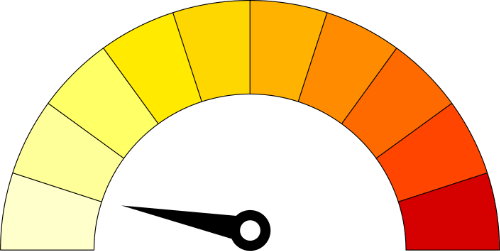This post is part of a larger deep dive
Curious about the role of Many-worlds interpretation in Dark Matter? Check out Dark Matter Explained!
Or read the full Dark Matter article!
This post is part of a larger deep dive
Curious about the role of Many-worlds interpretation in Dark Matter? Check out Dark Matter Explained!
Or read the full Dark Matter article!
Author: Blake Crouch
Publisher: Crown Publishing Group
Year: 2016
Language: English
Country: USA
Number of pages: 342

Our rating

Your rating
In most of my articles, there is always an interesting (or so I tend to believe) background story that led me to the particular work I’m reviewing.
With Dark Matter, that story is rather unremarkable…
I literally went to google and typed: “mind-bending books”. Dark Matter came up at the top of the list in goodreads.
So, I decided to have a go at it.
I have to admit that I usually take months, sometimes over a year, to finish a novel – yes, I’m a terribly slow reader. With Dark Matter, I finished the novel in just about 3 weeks. For me, that is some serious lightning-speed reading.
And that, my friends, attests to how engaging the book was, and made me start wondering if I’ve been reading the wrong books… (by the way, the book it took me most time to read was Foucault’s Pendulum by Umberto Eco, which took me longer than a year to finish – I dare you say you read it faster!!).
Dark Matter tells the story of Jason Dessen, a high-school teacher of Physics, who lives in Chigago with his wife Daniela and their teenager son Charlie.
Jason had been a world-class physicist, who gave up his very promising career 15 years ago in order to focus on family.
One day Jason is kidnapped and drugged by a mysterious masked man, and ends up in a parallel universe, where everything and everyone he knows have changed.
Jason desperately tries to get back to his own world and family, stumbling along the way on all sorts of alternate worlds.
Dark Matter is like a book on steroids; the story progresses at lightning speed. Sentences are often 4/5 words (almost like a screenplay), and there is really hardly any boring section. I guess Crouch intended to grip readers to the story, and he certainly succeeds. I was captivated from beginning to end.
Having said that, I found the story line disappointing at times.
As it’s often the case with action thrillers, there were a certain amount of clichés.
For example, the protagonist is in possession of a few dozen ampoules with which he tries to find the universe from which he came, and, of course, he has to exhaust almost all of them for us to know if he succeeds or not. This is just another version of the diffusing-a-bomb-in-the-last-second kind of situation.
I’m really not sure why authors insist to leave everything to the last moment/second, since it tends to make the story predictable.
Then there is the whole escape from the high-security facility. The psychiatrist is the one that saves Jason by disabling the security cameras. But what sort of high-security facility is this, that even the psychiatrist is able to disable the cameras? Again, it just strikes me as unbelievable…
There is also the occasional “I need a car! Oh, this car has keys in the ignition, aren’t we lucky?”. (for all the Americans out there, do you really leave your car keys in the ignition?).
The title is also a bit misleading. I was really excited and hoping to read about the role of the mysterious dark matter in the narrative, but there is no real treatment of it in the book.
There is a point in which Jason2 explains to Daniela that dark matter is a mysterious form of matter that holds galaxies together and makes up most of the matter in the universe.
Then there is this sentence “Some string theorists think it might be a clue to the existence of the multiverse”. And that’s it! No real attempt to delve deeper into how dark matter is related to the multiverse.
Of course, I wouldn’t expect a scientific treatise. But mentioning dark matter and then just leave it at that was sort of unfulfilling.
Nevertheless, I could tell the author did his research, although I think he could have delved deeper on the philosophical implications of the Many-worlds multiverse.
The topics are dealt very superficial and the focus is more on action rather than the philosophical/scientific questions.
In the end, the novel feels like it has been written with cinema/television in mind.
Don’t be put off by my review – I’ve noticed I seem to be a little pricklier with novels than with other forms of entertainment, probably because it requires a greater deal of time to dissect and analyse.
I definitely recommend the book! It’s gripping from beginning to end, and it will make you question reality at a very human level.
As I will explain below, the Many-worlds theory has been a theory seriously considered by many world-renowned theoretical physicists. As a matter of fact, it is one of the few successful theories that can accommodate many paradoxes that have been bothering physicists’ minds, without breaking any laws of physics.
Notwithstanding the 3-4 word sentences, Crouch is a good writer and I liked the fact he did not attempt to be presumptuous. The story line is easy to follow, and you will never get bored.
Personally, I would have welcomed a bit more scientific background and deeper philosophical debates, but, of course, that might have never been Crouch’s intention with this book from the beginning.
Here, at Mindlybiz, Dark Matter gets a star rating of 3.5.
When I googled mind-bending books, and got this book as a first result in goodreads, I thought I would have in hands a very strange book with many twists and turns.
But it isn’t.
The story isn’t confusing or weird at all. Maybe, if you aren’t familiar with the concept of the multiverse (and the Many-worlds interpretation in particular), you might struggle with the explanatory parts.
However, those are few and far between, and they won’t be a determent to enjoy the novel.
In fact, the book only contains two elements that make the story slightly strange: Daniela’s exposition (which is awesome by the way), and the corridors with doors to the alternate worlds. Those added a nice weird element to the story, but will not leave you utterly confused.
There is also a slight ambiguity about the ending, although I think most people will reach a similar conclusion. I spice it up a bit at the end of my analysis, and offer an alternate, gloomier, interpretation of that ending.
For that reason, Dark Matter gets a Bizarrometer of 1.
Dark Matter will make you question the very nature of reality, as well as your place in the universe.
This may sound cheesy, and perhaps it is, but if you do not feel that way once you finish the book, then I suspect the implications of the novel haven’t really sunk in.
You see, the main theme of the novel – the idea that (quantum) decisions exist in a state of superposition, where all outcomes will be realised – may sound like a radical and preposterous proposition. Maybe the stuff for science fiction stories, which shouldn’t be taken too seriously.
Sure, humans achieving a state of superposition (as Jason2 was able to achieve) is simply beyond comprehension, and not at all likely to happen in any foreseeable future.
However, Crouch’s flair was to write the story with ideas that are grounded on actual science. The Many-worlds interpretation is not mere speculation. It is a serious and, for the most part, accepted interpretation of how quantum mechanics translates into experienced reality.
Dark Matter makes us aware of this; it goes a step further from other parallel universe stories, because it links its story to actual physics.
Being in a state of superposition allowed Jason to travel to other timelines that evolved independently of his own. Along the way, he meets worlds that were beyond his imagination. According to the Many-worlds interpretation: if something has the potential to exist in real life, it will exist.
He finally reaches his beloved Chicago in the nick of time. But so do other Jasons that happened to have been “created” in the worlds Jason had visited.
After a series of fatal encounters with some of his duplicates, he finally manages to escape with Daniela and Charlie to an unknown world.
The novel is geared towards action, so it’s natural that more philosophical questions are not fully considered.
To me, there are at least two lingering questions.
First question: could there actually be a “true” Jason?
This question is briefly addressed in the novel, and we are led to the conclusion that all Jasons are real, none is more real than the other.
However, many readers may have missed the implications of Jason branching into many Jasons, as readers become more involved with the Jason narrating the story. But ask yourself the question: is the Jason-narrator the Jason that Daniela should end up with?
Perhaps it is, but also perhaps it is not (check out why in the detailed analysis below).
The second question is related to whether the Dessen family will meet a favourable end. The description of the world Jason, Charlie and Daniela will step into at the end of the novel is ambiguous:
“A wind through the door carries the scent of wet earth and unknown flowers.
A world just after a storm.”
That could mean just about anything from a terrifying underworld to a celestial kingdom.
Considering Charlie’s state of mind, as well as the pressure to choose a door, would likely not bring visions of good worlds. Therefore, I’m more inclined to believe that Charlie summoned a world that is more along the lines of what Jason experienced in his first few attempts with the box.
But before going any deeper in my analysis, let’s first review the Many-worlds interpretation, and see why scientists haven’t discarded it as a plausible interpretation of quantum mechanics.
Excelent review and explanation
Thank you for your comment Kaline! I’m really happy you enjoyed the article!